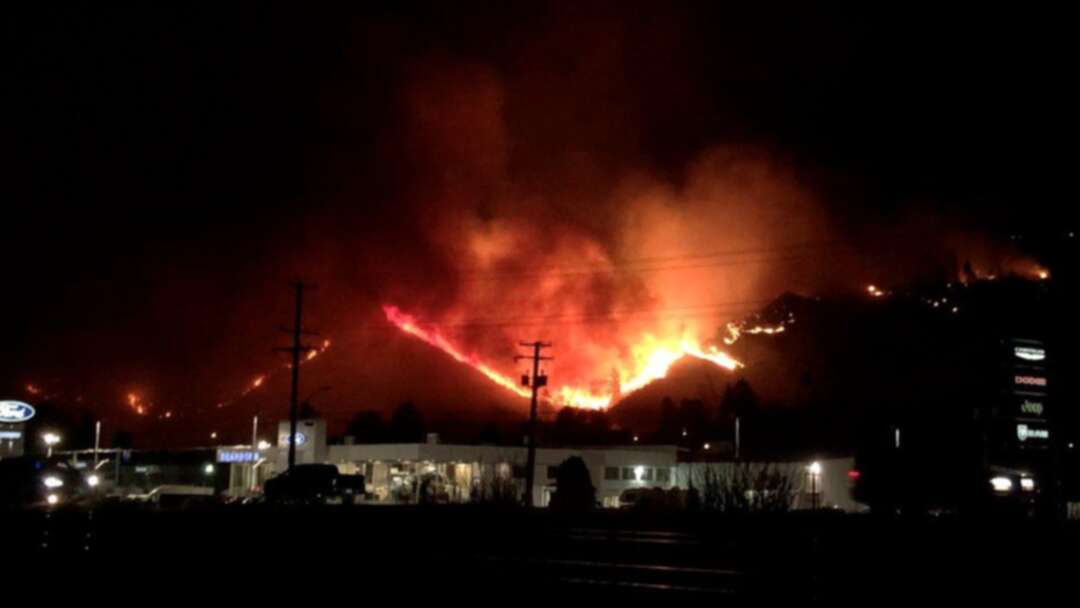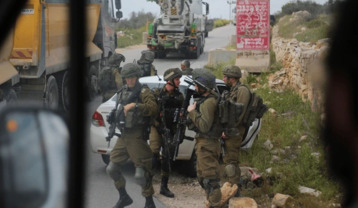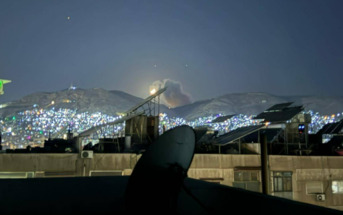-
As A Result Of Heatwave, Wildfires Fuelled By Lightning Strikes Engulf Western Canada

According to BBC, more than 130 wildfires - fuelled by lightning strikes - are burning across western Canada following a record-breaking heatwave. Western Canada
Canada's federal government said it would send military aircraft to assist emergency services in British Columbia battling to control the fires.
Earlier this week, people had to flee the village of Lytton in the province.
Lytton, which recorded Canada's highest ever temperature of 49.6C (121.3F) on Tuesday, was later destroyed by fire.
The blaze in the village, which is home to some 250 people and located about 260km (160 miles) north-east of Vancouver, forced many residents to leave without their belongings on Wednesday evening.
The BBC reported that Mayor Polderman said the ""Within about 15 minutes the whole town was engulfed in flames."
On Friday, the British Columbia Wildfire Service said that 136 fires were active across the province, and that about 12,000 lightning strikes had been recorded the previous day. Western Canada
According to service's director of provincial operations Cliff Chapman, "Many of those lightning strikes were hitting near communities."
Hundreds more residents have been warned they may have to leave their homes.
Canada's Defence Minister Harjit Sajjan said the government would provide assistance including military helicopters and personnel to help tackle the fires and reach people threatened by the flames.
The blazes have forced the closure of a number of highways in both directions.
Public Safety Minister Bill Blair said the weather and the wildfires were having a "devastating" and "unprecedented" impact on British Columbia.
"These wildfires show that we are in the earliest stages of what promises to be a long and challenging summer," he said.
The province's medical examiner's office said extreme heat was likely to have contributed to 719 sudden deaths over the past week - a figure it said was "three times more" than the average for the time of year.
"Many of the deaths experienced over the past week were among older individuals living alone in private residences with minimal ventilation," Chief Coroner Lisa Lapointe said in a statement. Western Canada
Temperatures have been easing in coastal areas of Canada, but there is not much respite for inland regions. The British Columbia Wildfire Service said it was bracing for more wildfires throughout the weekend.
Abnormally high temperatures have been recorded in swathes of North America in recent days.
Experts say that climate change is expected to increase the frequency of extreme weather events, such as heatwaves. However, linking any single event to global warming is complicated. Western Canada
Source: BBC
Image source: Reuters-BBC
You May Also Like
Popular Posts
Caricature
BENEFIT Sponsors BuildHer...
- April 23, 2025
BENEFIT, the Kingdom’s innovator and leading company in Fintech and electronic financial transactions service, has sponsored the BuildHer CityHack 2025 Hackathon, a two-day event spearheaded by the College of Engineering and Technology at the Royal University for Women (RUW).
Aimed at secondary school students, the event brought together a distinguished group of academic professionals and technology experts to mentor and inspire young participants.
More than 100 high school students from across the Kingdom of Bahrain took part in the hackathon, which featured an intensive programme of training workshops and hands-on sessions. These activities were tailored to enhance participants’ critical thinking, collaborative problem-solving, and team-building capabilities, while also encouraging the development of practical and sustainable solutions to contemporary challenges using modern technological tools.
BENEFIT’s Chief Executive Mr. Abdulwahed AlJanahi, commented: “Our support for this educational hackathon reflects our long-term strategic vision to nurture the talents of emerging national youth and empower the next generation of accomplished female leaders in technology. By fostering creativity and innovation, we aim to contribute meaningfully to Bahrain’s comprehensive development goals and align with the aspirations outlined in the Kingdom’s Vision 2030—an ambition in which BENEFIT plays a central role.”
Professor Riyadh Yousif Hamzah, President of the Royal University for Women, commented: “This initiative reflects our commitment to advancing women in STEM fields. We're cultivating a generation of creative, solution-driven female leaders who will drive national development. Our partnership with BENEFIT exemplifies the powerful synergy between academia and private sector in supporting educational innovation.”
Hanan Abdulla Hasan, Senior Manager, PR & Communication at BENEFIT, said: “We are honoured to collaborate with RUW in supporting this remarkable technology-focused event. It highlights our commitment to social responsibility, and our ongoing efforts to enhance the digital and innovation capabilities of young Bahraini women and foster their ability to harness technological tools in the service of a smarter, more sustainable future.”
For his part, Dr. Humam ElAgha, Acting Dean of the College of Engineering and Technology at the University, said: “BuildHer CityHack 2025 embodies our hands-on approach to education. By tackling real-world problems through creative thinking and sustainable solutions, we're preparing women to thrive in the knowledge economy – a cornerstone of the University's vision.”
opinion
Report
ads
Newsletter
Subscribe to our mailing list to get the new updates!






















